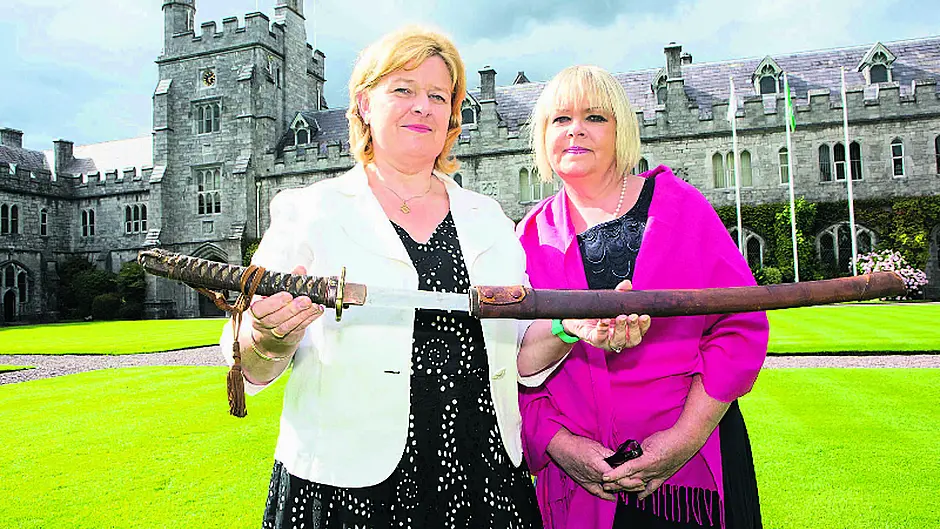A book looking at the exciting life of Castletownbere doctor Aidan McCarthy will be launched in the iconic pub which bears his name this Saturday, August 20th.
A BOOK looking at the exciting life of Castletownbere doctor Aidan McCarthy will be launched in the iconic pub which bears his name this Saturday, August 20th.
A Doctor’s Sword – How an Irish Doctor Survived War, Captivity and the Atomic Bomb is written by Bob Jackson, a lecturer in creative media in IT Tralee, who also made a film on the life of the West Cork doctor.
The book takes its name from the ancient samurai sword presented to Dr McCarthy by Isao Kusuno – the Japanese commander of the Mitsubishi camp where he had been held prisoner and whose life McCarthy saved.
The sword was given to the doctor to thank him for saving the Japanese commander’s life.
Bob Jackson first heard of Dr Aidan MacCarthy over sixteen years ago while working in a bar in Cork city. One of the regular customers, who had been in the RAF, told a story of a doctor in West Cork with a connection to the atomic bomb in Nagasaki. Intrigued, Bob travelled to MacCarthy’s Bar in Castletownbere where he met Aidan’s daughter Adrienne.
‘Aidan MacCarthy was one of a handful of people who survived the two events that mark the beginning and end of the Second World War,’ Jackson says.
He was evacuated from the beaches of Dunkirk after three days of relentless attacks in May 1940, and he was trembling in a makeshift bomb shelter in the centre of Nagasaki when the atomic bomb destroyed the city on August 9th, 1945.’
In the intervening years, Dr MacCarthy survived burning planes, sinking ships, jungle warfare, starvation, disease, captivity and slave labour. In his own writings, he described his experience of the dropping of the atomic bomb and the aftermath: ‘There then followed a blue flash accompanied by a very bright magnesium-type flare ... then came a frighteningly loud but rather flat explosion which was followed by a blast of hot air … all this was followed by eerie silence.’
That memoir proved inspiring to Bob Jackson, but it also presented a slight problem in terms of putting together an autobiography.
‘I read Aidan’s memoir, which is a fascinating and engrossing account of his story but because of his genuine, self-effacing modesty, it’s often short on detail,’ he says.
‘Yet, his character comes through more in what he does not say. I wasn’t surprised that, in the devastating aftermath of the atomic bomb, he was the first non-Japanese doctor to assist civilians.
‘I wanted to know more about that samurai sword – especially since there was a possibility that the ashes of the officer’s ancestors were embedded in the handle – and after Aidan’s widow Kathleen mentioned there was a photo of the Japanese officer somewhere in their belongings, I persuaded his family to look for it.’
After years of searching, Aidan’s daughter Nicola found the photograph and travelled with Bob to Japan to find the family of the Japanese commander. In a moving encounter detailed in A Doctor’s Sword and in the critically-acclaimed documentary of the same name, they met the man’s descendants at a cemetery in Kyushu Island, including his grandson who credits his existence to Aidan’s act of selflessness in saving his grandfather’s life.
This weekend’s launch, at McCarthy’s Bar in Castletownbere on Saturday, will be co-hosted by Beara Historical Society as part of Heritage Week 2016.
A Doctor’s Sword – How an Irish Doctor Survived War, Captivity and the Atomic Bomb by Bob Jackson is published by The Collins Press, priced €19.99) at www.collinspress.ie.










